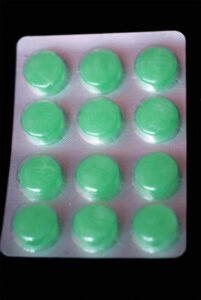Medically reviewed by Dr. Ramesh Gaddam, M.D. — Written by Sumalatha, D.N.H.E
Table of Contents
ToggleThroat pain can be quite uncomfortable, whether it’s due to a cold, flu, or other reasons. Soothing a sore throat can be easy with simple home remedies. From warm salt water gargles to herbal teas with honey, there are plenty of natural solutions. Resting your voice and staying hydrated also help. Discover quick relief and comfort without leaving your home.
Saltwater gargle
Mix a teaspoon of salt in a glass of warm water and gargle with it several times a day. This can help reduce inflammation and kill.

Saltwater gargling is a simple yet effective home remedy that has been used for generations to alleviate throat pain and discomfort.
The process involves mixing salt with warm water and then gargling the solution in the mouth, allowing it to reach the back of the throat before spitting it out.
Here’s a detailed explanation of how saltwater gargling works and its benefits:
Preparation:
To prepare the saltwater gargle solution, you’ll need a glass of warm water and a teaspoon of salt.
The water should be warm enough to dissolve the salt completely but not too hot to avoid scalding your mouth.
Mixing:
Measure out a teaspoon of salt and add it to the warm water.
Stir the mixture until the salt is completely dissolved.
The salt acts as a natural disinfectant and helps to create an environment in which bacteria struggle to survive.
Gargling:
Take a mouthful of the saltwater solution and tilt your head back slightly.
Gargle the solution in the back of your throat for about 30 seconds to a minute, allowing it to reach all areas of your throat.
It’s important to avoid swallowing the solution, as it is meant to be spit out after gargling.
Spitting:
After gargling, spit out the saltwater solution into the sink.
Be sure to thoroughly rinse your mouth with plain water afterward to remove any residual salt.
Frequency:
You can gargle with saltwater several times a day, especially when you’re experiencing throat pain or irritation.
It’s recommended to gargle with the solution at least three to four times a day for maximum effectiveness.
Benefits:
Reduced inflammation:
Saltwater gargling can help reduce inflammation in the throat by drawing out excess fluid and reducing swelling.
This can provide relief from pain and discomfort associated with conditions like sore throat or tonsillitis.
Bacterial elimination:
The salt in the gargle solution creates a hypertonic environment, which means that it has a higher concentration of salt than the surrounding tissues.
This can help to kill bacteria by dehydrating them and disrupting their cellular functions.
Gargling with saltwater can therefore help to reduce the presence of harmful bacteria in the throat and promote healing.
Mucus removal:
Saltwater gargling can also help to loosen and remove mucus from the throat, which can be particularly beneficial if you’re experiencing congestion or postnasal drip.
Overall, saltwater gargling is a safe and inexpensive home remedy that can provide relief from throat pain and inflammation.
However, if your symptoms persist or worsen despite gargling with saltwater, it’s important to consult a healthcare professional for further evaluation and treatment.
Honey and lemon
Mix a tablespoon of honey and the juice of half a lemon in a cup of warm water. Sip on this mixture to soothe your throat.

Honey has antimicrobial properties, while lemon provides vitamin C which can boost your immune system.
Honey and lemon concoctions have long been cherished as a comforting and effective remedy for soothing sore throats and coughs.
This simple yet powerful mixture combines the antibacterial properties of honey with the vitamin C-rich acidic nature of lemon. Here’s a detailed explanation of how to prepare and benefit from this home remedy:
Ingredients:
Honey:
Choose raw, organic honey if possible, as it retains more of its beneficial properties compared to processed honey. Honey has natural antimicrobial properties that can help fight off bacteria and soothe throat irritation.
Lemon:
Freshly squeezed lemon juice is preferred for its high vitamin C content and acidic properties, which can help thin mucus and provide relief from throat discomfort.
Warm water:
Warm water is used to dilute the mixture and create a soothing drink that is gentle on the throat.
Preparation:
Start by heating a cup of water until it’s warm, but not boiling hot. Boiling water can destroy some of the beneficial properties of honey and lemon.
Squeeze the juice of half a lemon into the warm water. Make sure to remove any seeds.
Add a tablespoon of honey to the lemon-infused warm water.
Stir the mixture thoroughly until the honey is completely dissolved.
Consumption:
Sip on the honey and lemon mixture slowly, allowing it to coat your throat as you swallow. You can drink it while it’s still warm for added comfort.
Take small sips rather than gulping it down quickly to maximize its soothing effects on your throat.
Repeat this process several times a day, especially when you’re experiencing throat pain or irritation.
Benefits:
Benefits of Honey and Lemon:
Soothing effect:
The combination of warm water, honey, and lemon creates a soothing sensation that can help alleviate throat pain and irritation.
Antimicrobial properties:
Honey contains enzymes that release hydrogen peroxide when it comes into contact with moisture, making it an effective natural antibacterial agent.
Lemon juice also has antimicrobial properties, further enhancing the throat-soothing effects of this mixture.
Immune support:
Lemon is rich in vitamin C, which is known to support the immune system and may help shorten the duration of colds or flu.
Hydration:
Drinking warm liquids like honey and lemon water can help keep you hydrated, which is essential for maintaining healthy mucous membranes in the throat and reducing irritation.
Overall, honey and lemon water is a delicious and comforting remedy that can provide relief from throat pain and irritation.
However, if your symptoms persist or worsen, it’s important to seek medical advice for proper diagnosis and treatment.
Warm liquids
Drink warm liquids such as herbal teas, clear broths, or warm water with honey and lemon. These can help soothe your throat and provide relief.

Warm liquids are often recommended as a soothing remedy for various throat ailments due to their ability to provide comfort and relief.
Whether it’s a cup of herbal tea, a bowl of clear broth, or a mixture of warm water with honey and lemon, these beverages offer several benefits for alleviating throat discomfort.
Here’s a detailed explanation of how warm liquids can help and some popular options:
Herbal Teas
Chamomile Tea:
Chamomile tea is known for its calming properties and is often used to soothe sore throats and reduce inflammation.
It can also help promote relaxation, which may aid in better sleep during times of illness.
Peppermint Tea:
Peppermint tea has a cooling effect that can help alleviate throat irritation and provide relief from congestion.
It may also help to clear nasal passages and ease breathing.
Ginger Tea:
Ginger tea has anti-inflammatory and antimicrobial properties that can help soothe sore throats and reduce inflammation.
It’s also known to alleviate nausea and improve digestion, which can be beneficial during times of illness.
Clear Broths:
Chicken Broth:
Chicken broth is not only comforting but also provides hydration and essential nutrients that can support overall health during illness.
The warm liquid helps soothe the throat, while the nutrients in the broth may help boost the immune system.
Vegetable Broth:
Vegetable broth is another nutritious option that can provide hydration and comfort.
It’s rich in vitamins and minerals, which are important for supporting the immune system and promoting recovery.
Warm Water with Honey and Lemon:
As previously mentioned, warm water with honey and lemon is a classic home remedy for soothing sore throats.
The warmth of the water helps to ease throat pain, while the honey provides antimicrobial properties and the lemon offers vitamin C to support the immune system.
Benefits:
Soothing:
The warmth of the liquids helps to relax the throat muscles and alleviate discomfort.
This can be particularly helpful for soothing sore throats, dry coughs, and other throat-related issues.
Hydration:
Staying hydrated is crucial for maintaining healthy mucous membranes in the throat and preventing further irritation.
Warm liquids provide hydration while also offering additional benefits from their respective ingredients.
Nutrient Intake:
Depending on the type of warm liquid consumed, you may also benefit from essential nutrients such as vitamins, minerals, and antioxidants, which can support overall health and aid in recovery from illness.
Incorporating warm liquids into your daily routine can provide comforting relief for throat pain and irritation.
However, if symptoms persist or worsen, it’s important to consult a healthcare professional for proper diagnosis and treatment.
Stay hydrated
Drink plenty of fluids throughout the day to keep your throat moist and prevent dehydration. Avoid caffeine and alcohol, as they can dehydrate you further.

Staying hydrated is essential for overall health, and it becomes particularly important when dealing with throat pain or irritation.
Here’s a detailed explanation of why hydration is crucial for throat health and some tips on how to stay hydrated effectively:
Importance of Hydration:
Moisture for Throat:
Adequate hydration helps to keep the mucous membranes in your throat moist, which is crucial for maintaining comfort and preventing dryness or irritation.
Dry throat tissues are more prone to inflammation and can exacerbate throat pain.
Thinning Mucus:
Hydration can help thin out mucus secretions in the throat and respiratory tract, making it easier to expel phlegm and alleviate congestion.
Supports Healing:
Drinking plenty of fluids can support the body’s natural healing processes by ensuring optimal circulation of nutrients and immune cells to the affected area.
Recommended Fluids:
Water:
Plain water is the best choice for staying hydrated. It’s calorie-free, readily available, and essential for overall health.
Aim to drink at least 8 glasses of water per day, or more if you’re experiencing illness or engaging in strenuous activities.
Herbal Teas:
Herbal teas, such as chamomile, ginger, or licorice root tea, can provide hydration along with additional therapeutic benefits.
Opt for caffeine-free varieties to avoid potential dehydration.
Clear Broths:
Clear broths, such as chicken or vegetable broth, are not only hydrating but also provide essential nutrients that can support immune function and overall well-being.
Fruit-infused Water:
Infusing water with slices of citrus fruits, berries, or herbs can add flavor and encourage hydration. Citrus fruits like lemon or lime can also provide vitamin C, which supports immune health.
Electrolyte Drinks:
In cases of illness or intense physical activity, electrolyte drinks can help replenish lost fluids and electrolytes. Look for options with minimal added sugars and artificial ingredients.
Avoid Dehydrating Beverages:
Caffeinated Drinks:
Caffeine has diuretic properties, which means it can increase urine production and potentially lead to dehydration.
Limit consumption of caffeinated beverages such as coffee, tea, and soda, especially when experiencing throat discomfort.
Alcoholic Beverages:
Alcohol can also contribute to dehydration, so it’s best to avoid or limit alcoholic drinks, particularly when dealing with throat issues.
Hydration Tips:
Drink Throughout the Day:
Sip fluids regularly throughout the day rather than consuming large quantities all at once.
Listen to Your Body:
Pay attention to signs of thirst and respond by drinking water or other hydrating beverages.
Use a Reusable Water Bottle:
Keep a reusable water bottle with you throughout the day as a reminder to drink water regularly.
Monitor Urine Color:
Check the color of your urine; pale yellow or straw-colored urine indicates adequate hydration, while dark yellow or amber-colored urine may indicate dehydration.
By prioritizing hydration and choosing hydrating beverages wisely, you can support throat health, promote comfort, and aid in the body’s natural healing processes.
If throat pain persists or is accompanied by other concerning symptoms, it’s important to consult a healthcare professional for proper evaluation and treatment.
Humidifier
Use a humidifier in your bedroom to keep the air moist. This can help soothe a dry or irritated throat, especially during the night.

Using a humidifier in your bedroom can be a simple yet effective way to alleviate dryness and irritation in the throat, particularly during the night when symptoms may worsen due to decreased humidity levels.
Here’s a detailed explanation of how a humidifier works and its benefits for throat health:
How a Humidifier Works:
A humidifier is a device that adds moisture to the air, increasing humidity levels in the surrounding environment.
There are different types of humidifiers, including cool mist humidifiers, warm mist humidifiers, and ultrasonic humidifiers.
Each type operates differently but ultimately serves the same purpose of humidifying the air.
Benefits for Throat Health:
Moisturizes the Air:
Dry indoor air, especially during the winter months or in heated environments, can contribute to dryness and irritation in the throat.
A humidifier helps to replenish moisture in the air, keeping the throat and nasal passages hydrated.
Soothes Irritation:
Moist air can help soothe a dry or irritated throat, providing relief from discomfort, coughing, and hoarseness.
Promotes Comfortable Breathing:
Adequate humidity levels in the bedroom can make breathing easier, especially for individuals with respiratory conditions such as allergies, asthma, or congestion.
Prevents Dryness:
Using a humidifier regularly can help prevent the throat and nasal passages from becoming overly dry, reducing the risk of developing sore throat, nasal congestion, or respiratory infections.
Tips for Using a Humidifier:
Choose the Right Type:
Consider the size of your bedroom and personal preferences when selecting a humidifier.
Cool mist humidifiers are generally recommended for safety and energy efficiency, especially if children or pets are present.
Clean Regularly:
Follow the manufacturer’s instructions for cleaning and maintaining your humidifier to prevent the growth of mold, bacteria, or other harmful microorganisms.
Clean the water tank and filter regularly, and use distilled or demineralized water to reduce mineral buildup.
Monitor Humidity Levels:
Use a hygrometer to monitor indoor humidity levels and adjust the humidifier settings accordingly.
The ideal humidity level for indoor comfort and health is generally between 30% to 50%.
Use at Night:
Run the humidifier in your bedroom while sleeping to maintain optimal humidity levels throughout the night.
This can help prevent throat dryness and discomfort, allowing for better quality sleep.
In conclusion, using a humidifier in your bedroom can be a valuable addition to your home environment, particularly if you experience dry or irritated throat symptoms.
By keeping the air moist, a humidifier can promote throat comfort, alleviate dryness, and support overall respiratory health, especially during dry or cold weather conditions.
Throat lozenges or sprays:
Over-the-counter throat lozenges or sprays can provide temporary relief from throat pain. Look for products containing ingredients like menthol or benzocaine.

Throat lozenges and sprays are popular over-the-counter remedies for soothing throat pain and irritation.
They offer temporary relief by numbing the throat or providing a protective coating to reduce discomfort.
Here’s a detailed explanation of how throat lozenges and sprays work and the common ingredients to look for:
Throat Lozenges:
Mechanism of Action:
Throat lozenges typically contain ingredients such as menthol, benzocaine, or eucalyptus oil, which work by temporarily numbing the throat and reducing pain and irritation.
Soothing Ingredients:
Menthol is a natural compound derived from mint plants that produces a cooling sensation and can help alleviate throat discomfort.
Benzocaine is a local anesthetic that temporarily numbs the throat, providing relief from pain and irritation.
Moisturizing Agents:
Some throat lozenges also contain ingredients like honey or glycerin, which help to soothe and moisturize the throat by forming a protective coating.
Additional Ingredients:
Throat lozenges may also contain ingredients such as vitamin C, zinc, or herbal extracts like echinacea or slippery elm, which are believed to support immune health and provide additional relief.
Throat Sprays:
Mechanism of Action:
Throat sprays work by delivering a fine mist of soothing ingredients directly to the back of the throat, providing quick relief from pain and irritation.
Numbing Agents:
Throat sprays often contain numbing agents such as benzocaine, phenol, or lidocaine, which temporarily desensitize the throat and reduce discomfort.
Anti-inflammatory Ingredients:
Some throat sprays may also contain anti-inflammatory ingredients like ibuprofen or flurbiprofen, which help reduce inflammation and pain in the throat.
Antiseptic Agents:
Certain throat sprays contain antiseptic ingredients like chlorhexidine or cetylpyridinium chloride, which help kill bacteria and prevent infections in the throat.
Usage and Precautions:
Follow the manufacturer’s instructions for proper usage of throat lozenges or sprays.
Use lozenges or sprays as directed, typically every 2-4 hours as needed for relief.
Avoid swallowing throat lozenges whole to allow the ingredients to dissolve slowly in the mouth and coat the throat.
Be cautious when using throat sprays, as excessive use can lead to numbness or irritation of the throat.
Throat lozenges and sprays are generally safe for short-term use, but consult a healthcare professional if symptoms persist or worsen.
Conclusion
In conclusion, throat lozenges and sprays can provide temporary relief from throat pain and irritation by numbing the throat or providing a protective coating.
Look for products containing ingredients like menthol or benzocaine for effective relief.
However, if throat pain persists or is accompanied by other severe symptoms, it’s important to consult a healthcare professional for proper diagnosis and treatment.
Steam inhalation
Inhale steam from a bowl of hot water or a steamy shower. This can help moisturize your throat and alleviate discomfort.

Steam inhalation, also known as steam therapy or steam treatment, is a simple and effective home remedy for relieving throat discomfort, congestion, and respiratory symptoms.
It involves inhaling warm, moist air to help moisturize the throat, loosen mucus, and alleviate irritation.
Here’s a detailed explanation of how steam inhalation works and its benefits:
Preparation:
To perform steam inhalation, you can use a bowl of hot water or take a steamy shower.
For the bowl method, boil water in a pot or kettle and carefully pour it into a heat-resistant bowl.
Add a few drops of essential oils like eucalyptus or peppermint for added congestion relief, if desired.
Sit comfortably at a table with the bowl of hot water placed in front of you, making sure it’s on a stable surface.
Lean over the bowl, keeping a safe distance to avoid burns, and drape a towel over your head to create a tent, trapping the steam.
Inhalation Technique:
Close your eyes and breathe deeply and slowly through your nose, inhaling the steam deeply into your lungs.
Take slow, deliberate breaths, allowing the warm, moist air to penetrate deep into your throat and respiratory passages.
Continue inhaling the steam for about 5 to 10 minutes or until you feel relief.
You can take breaks if needed, but try to maintain the steam inhalation for an effective duration.
Benefits:
Moisturizes the Throat:
Inhaling steam helps to moisturize and hydrate the throat, which can provide relief from dryness, irritation, and soreness.
Loosens Mucus:
The warmth and moisture from the steam help to loosen thick mucus in the throat and respiratory tract, making it easier to expel through coughing or blowing the nose.
Clears Nasal Passages:
Steam inhalation can also help to clear nasal congestion by opening up blocked nasal passages and sinuses, allowing for easier breathing.
Soothes Irritation:
The warm, moist air can soothe irritated throat tissues, providing immediate relief from discomfort and promoting relaxation.
Safety Precautions:
Be cautious when handling hot water to avoid burns or scalds. Keep a safe distance from the steam to prevent accidental injuries.
Use essential oils with caution, as some individuals may be sensitive to certain oils. Start with a small amount and discontinue use if you experience any adverse reactions.
Steam inhalation is generally safe for most people, but it may not be suitable for individuals with certain respiratory conditions like asthma or chronic obstructive pulmonary disease (COPD).
Consult a healthcare professional before trying steam inhalation if you have any underlying health concerns.
Conclusion
In conclusion, steam inhalation is a simple and natural remedy for relieving throat discomfort, congestion, and respiratory symptoms.
By inhaling warm, moist air, you can moisturize your throat, loosen mucus, and alleviate irritation effectively.
However, if symptoms persist or worsen, it’s important to consult a healthcare professional for proper diagnosis and treatment.
Rest your voice
Avoid speaking loudly or whispering, as both can strain your vocal cords and worsen throat pain. Resting your voice can help your throat heal faster.

Resting your voice is an important aspect of self-care when dealing with throat pain or irritation, especially if it’s caused by vocal strain or overuse.
Here’s a detailed explanation of why resting your voice is beneficial and some tips for effectively giving your voice a break:
Mechanism of Vocal Strain:
Speaking loudly or whispering can strain the vocal cords, leading to inflammation, irritation, and discomfort in the throat.
Loud speaking requires the vocal cords to exert more force to produce sound, while whispering can cause the vocal cords to rub together unevenly, both of which can lead to vocal fatigue and strain.
Resting your voice allows the vocal cords to recover and heal from any damage or irritation, promoting faster recovery and reducing the risk of further injury.
Benefits of Voice Rest:
Reduced Strain:
Resting your voice reduces the strain and stress on the vocal cords, allowing them to relax and recover.
Faster Healing:
Giving your voice a break allows any inflammation or irritation in the throat to subside, promoting faster healing and recovery.
Prevention of Complications:
Continued vocal strain can lead to more serious vocal cord injuries, such as nodules or polyps. Resting your voice helps prevent such complications and promotes long-term vocal health.
Improved Symptoms:
Resting your voice can alleviate symptoms such as hoarseness, sore throat, and difficulty speaking, allowing you to feel more comfortable and function better in daily activities.
Tips for Voice Rest
Minimize Speaking:
Limit your speaking as much as possible, especially in noisy environments or situations where you need to raise your voice to be heard.
Use Communication Alternatives:
Consider using non-verbal communication methods, such as writing, texting, or using gestures, to convey your message without straining your voice.
Avoid Whispering:
While whispering may seem gentler on the throat, it can actually cause more strain on the vocal cords. Try to avoid whispering and instead communicate using a soft, normal speaking voice when necessary.
Stay Hydrated:
Drink plenty of water to keep your throat hydrated and lubricated, which can help reduce irritation and promote healing.
Rest Your Voice During Illness:
If you’re experiencing throat pain or illness, prioritize vocal rest to allow your body to focus on healing.
Conclusion
In conclusion, resting your voice is an important part of self-care when dealing with throat pain, vocal strain, or inflammation.
By minimizing speaking, avoiding whispering, and prioritizing vocal rest, you can promote faster healing, reduce discomfort, and maintain long-term vocal health.
If symptoms persist or worsen despite vocal rest, it’s important to consult a healthcare professional for proper evaluation and treatment.
Warm compress:
Apply a warm compress to the outside of your throat for a few minutes at a time. This can help reduce inflammation and relieve pain.

Using a warm compress on the outside of your throat can be a simple and effective way to alleviate discomfort, reduce inflammation, and promote relaxation.
Here’s a detailed explanation of how to use a warm compress and its benefits:
Preparation:
To make a warm compress, you can use a clean washcloth, towel, or heating pad.
If using a washcloth or towel, soak it in warm water and then wring out the excess water to prevent dripping.
If using a heating pad, adjust it to a comfortable temperature, typically warm but not too hot to avoid burning your skin.
Application:
Hold the warm compress against the outside of your throat, covering the affected area.
Keep the compress in place for a few minutes at a time, allowing the warmth to penetrate into the tissues and muscles of the throat.
You can gently massage the throat area while applying the warm compress to further promote relaxation and relieve tension.
Benefits:
Reduces Inflammation:
The warmth from the compress helps to increase blood flow to the throat area, which can reduce inflammation and swelling, leading to relief from pain and discomfort.
Soothes Soreness:
Applying warmth to the throat can help soothe sore muscles and tissues, providing immediate relief from pain and tenderness.
Promotes Relaxation:
The warmth and gentle pressure of the compress can promote relaxation and relieve tension in the throat muscles, helping you feel more comfortable and at ease.
Enhances Healing:
By improving blood circulation and reducing inflammation, a warm compress can help enhance the body’s natural healing processes, allowing the throat to heal more quickly and effectively.
Safety Precautions:
Be cautious not to make the compress too hot, as this can cause burns or scalding.
Test the temperature of the compress on the inside of your wrist before applying it to your throat.
Avoid applying excessive pressure to the throat area, as this can cause discomfort or strain.
If you have sensitive skin or a medical condition that affects your skin’s sensitivity, consult a healthcare professional before using a warm compress.
Conclusion:
In conclusion, using a warm compress on the outside of your throat can be a safe and effective way to reduce inflammation, relieve pain, and promote relaxation
. By applying gentle warmth to the affected area, you can soothe soreness, improve blood circulation, and enhance the healing process.
If throat pain persists or worsens despite using a warm compress, it’s important to consult a healthcare professional for proper evaluation and treatment.
Elevate your head
Prop yourself up with extra pillows while sleeping to keep your head elevated. This can help reduce postnasal drip and alleviate throat irritation.

Elevating your head while sleeping by propping yourself up with extra pillows can indeed help alleviate throat irritation, particularly if it’s caused by postnasal drip or acid reflux.
Here’s a detailed explanation of how elevating your head can be beneficial and some tips for achieving proper elevation:
Mechanism of Action:
Elevating your head while sleeping helps prevent mucus and stomach acid from pooling in the throat, which can cause irritation, coughing, and discomfort.
Gravity helps to keep nasal secretions and stomach acid from flowing back into the throat, reducing the likelihood of irritation and inflammation.
Benefits
Reduces Postnasal Drip:
Postnasal drip occurs when excess mucus drips down the back of the throat, leading to irritation and coughing.
By elevating your head, you can help prevent mucus from accumulating in the throat, reducing irritation and discomfort.
Alleviates Acid Reflux:
Acid reflux, also known as gastroesophageal reflux disease (GERD), occurs when stomach acid flows back into the esophagus and throat, causing irritation and heartburn.
Elevating your head can help prevent acid reflux by keeping the acid in the stomach and reducing the likelihood of it reaching the throat.
Promotes Comfortable Breathing:
Elevating your head can also help open up the airways and promote easier breathing, particularly if you’re experiencing congestion or nasal stuffiness.
Tips for Proper Elevation
Use Multiple Pillows:
Stack several pillows under your head to achieve the desired elevation.
Alternatively, you can use a wedge-shaped pillow specifically designed for elevating the head and upper body.
Maintain a Comfortable Position:
Make sure the pillows are arranged in a way that feels comfortable and supportive.
Experiment with different heights and angles until you find a position that allows you to sleep comfortably without straining your neck or back.
Avoid Bending at the Waist:
While elevating your head can be beneficial, it’s important to avoid bending at the waist, as this can compress the abdomen and increase pressure on the stomach, potentially worsening acid reflux symptoms.
Consider Sleeping on Your Back:
Sleeping on your back with your head elevated is often recommended for reducing postnasal drip and acid reflux.
However, if you find it uncomfortable or prefer another sleeping position, choose what works best for you.
Other Considerations:
If you have chronic throat irritation or acid reflux, it’s important to address the underlying cause with lifestyle modifications, dietary changes, and possibly medication under the guidance of a healthcare professional.
Elevating your head while sleeping is just one component of managing throat irritation and related symptoms.
It’s essential to adopt a comprehensive approach that includes proper hydration, dietary adjustments, and stress management to promote overall throat health.
Conclusion:
In conclusion, elevating your head while sleeping can be an effective way to reduce postnasal drip, alleviate throat irritation, and prevent acid reflux symptoms.
By maintaining proper elevation and adopting healthy sleep habits, you can promote better throat health and improve overall sleep quality.
If throat irritation persists despite elevation or is accompanied by other concerning symptoms, consult a healthcare professional for further evaluation and treatment.
Medically reviewed by Dr. Ramesh Gaddam, M.D.

General Physician, Diabetologist, and Critical Care Specialist.
Related
Discover more from Health Build-Up
Subscribe to get the latest posts sent to your email.
Pingback: Sleep Apnea : Do You Have Trouble Sleeping? It Could Be